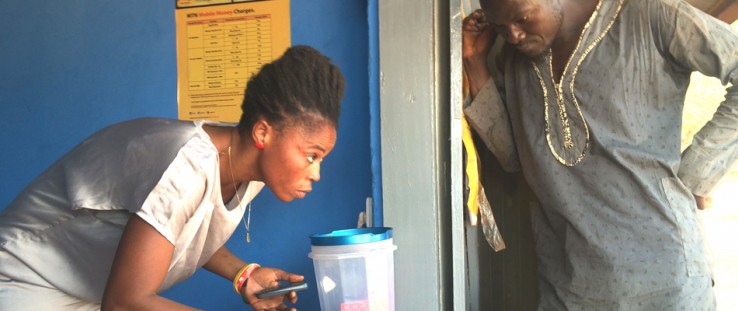 Sylvia Awuni helps a client make a mobile money transaction.
John O'Bryan, USAID
Sylvia Awuni helps a client make a mobile money transaction.
John O'Bryan, USAID
 Sylvia Awuni helps a client make a mobile money transaction.
John O'Bryan, USAID
Sylvia Awuni helps a client make a mobile money transaction.
John O'Bryan, USAID
Sylvia Awuni is the first and only female mobile money agent in Tongo, Ghana. Painted a vibrant blue, her shop is simply furnished with a small table, a chair and a bench for customers—and it looks nothing like a traditional bank.
But her business, Sylvia Ventures, frequently has a line of people waiting to “cash in” or “cash out” using mobile money, a service that offers an alternative to carrying cash over long distances or sending it via strangers, such as bus drivers. With mobile money, Tongo’s residents can simply walk over to her shop for a service that was previously unavailable in their village: banking.
On a Tuesday in February, Awuni sits in her new storefront near the market and uses one of her two mobile phones to “cash out” 50 Ghanaian cedis (GH₵)—nearly $14—for a customer. She is helping a mother who received a text message that her son, almost 350 miles away in Kumasi, has sent her funds via a service provided by MTN, the largest mobile network operator in Ghana.
Seven days a week, Awuni helps families like this one send and receive money from relatives across the country, facilitates transfers for small business owners paying their suppliers and assists villagers in paying their water and utility bills—all with just her phone and a paper ledger.
Mobile money, which is spreading across Ghana and sub-Saharan Africa, is helping to address one of the most common and intractable development challenges: exclusion from financial services. In this primarily rural region of Upper East in northern Ghana, where the average income is just $500 per year, nearly 70 percent of the population has never used a formal financial service. Yet, many now own or have access to a mobile phone.
The number of unique mobile subscribers in Ghana has grown dramatically from 7 percent to 52 percent of the population in the last 10 years. MTN was the first mobile network operator to launch a mobile money service in Ghana in 2009 and currently has over 2.5 million mobile money accounts, generating more than 6.5 million transactions per month. Long shut out of the formal economy, underserved communities are now finally gaining a foothold in an emerging digital economy.
USAID has championed financial inclusion since the Agency’s founding in the early 1960s. Yet despite the tremendous growth of the microfinance sector over the years, “access to finance remains one of the most common and most intractable development challenges,” says Kay McGowan, senior digital finance adviser for USAID’s Global Development Lab.
According to McGowan, “formal financial systems were just not built to work in the economic reality at the base of the pyramid.” But while extending traditional financial services to rural areas like Tongo would be prohibitively expensive, digital technology changes this equation. Instead of building bank branches, people can carry out necessary transactions with the phones they already have in their pockets.
Mainstream banks, which tend to cater to a more urban and corporate clientele, have been slow to seize the opportunity that underserved communities represent.
Digital finance represents a new approach to financial inclusion. It gives poor families access to an array of affordable financial tools and services that make financial transactions cheaper, more secure and transparent, and helps them weather severe financial shocks and lead more resilient lives.
Instead, in markets where regulators permit non-bank providers to offer basic financial services, mobile network operators and third-party service providers are capitalizing on this opportunity, developing the technology platforms and creating affordable products and services that are finally connecting communities like Tongo to financial services. Operators and emerging entrepreneurs are using this payment infrastructure to deliver services, from savings products to pay-as-you-go electricity.
Mobile Money Agents Rule
Their success relies on a network of trained, quality agents like Awuni, who act as the link between customers and digital financial services. Awuni is the introduction to mobile money for many who have never heard of the service.
She was recruited by MTN in 2011, before mobile money was widely understood in her community, and has become well-respected by her colleagues and the regional MTN mobile money representative.
Awuni’s first task was to educate her fellow villagers and allay persistent suspicions of the new service: “At that time, they thought MTN wanted to steal from them, influence them, but I said ‘no, this is something that will help you tomorrow.’”
She would typically win over new customers by describing the service’s benefits and how it could help them: “When you have mobile money accounts on your phone, a friend or sister or brother can send you money through mobile money on your phone, and it will be easier than going to the bank ... with mobile money you can save your money in your wallet.”
“Mobile money makes it so I don't have to rely on another person to deliver money for me,” says a customer standing in line in front of Awuni’s shop. “I can just go to my local merchant and transfer money automatically from my cell phone, without having to worry about other people.”
Beyond this broader role, female mobile money agents like Awuni are also critical to increasing women’s financial inclusion.
A recent study conducted by the USAID-funded GSMA Connected Women program shows that women are 14 percent less likely than men to own a mobile phone, and less likely to use services beyond sending and receiving calls. This mirrors the persistent gender gap in access to finance, where women are 15 percent less likely than men to have a bank account.
According to Christopher Burns, acting director of the Global Development Lab’s digital development team, female agents can help drive greater phone ownership and use by women, including their access to digital financial services, because women are generally more comfortable transacting and interacting with one another. Particularly in countries where it is culturally difficult for women to interact with men, such as in the Middle East and South Asia, female mobile money agents can be crucial for establishing trust and confidence, especially with the introduction of new technologies and financial services.
Burns believes that to attract female customers, who make up just over 50 percent of their potential customer base in Ghana, mobile network operators must do more to design products and services for women across different socio-economic brackets. This includes acknowledging and addressing barriers to mobile adoption faced by women that include lower levels of ownership, usage and literacy.
As they begin to take on the role of rural bankers, mobile money agents, especially women, must deal with a risk that bedevils banks everywhere: theft.
Over a year after she started working as a mobile money agent, Awuni was robbed by a group of thieves while returning home on her motor scooter from the bank in the regional capital of Bolgatanga. She lost of all her working capital for the following day’s mobile money transactions, which was a huge financial loss for a single mother of two and small business owner who works on credit. It forced her to temporarily quit her job as an agent. She believes the thieves, who were never caught, knew her as an agent in Tongo and specifically targeted her because she is a woman.
“Mobile Money Is Faster Than Convenience”
Despite the much heralded growth that digital finance has seen in places like Kenya, many markets, including Ghana, still have not moved far beyond the basic cash-in/cash-out business model, which places a heavy burden and significant amount of risk on entrepreneurs like Awuni who often work alone in remote areas.
Most of her clients cash out more than they cash in, causing a further strain on her day-to-day liquidity. It’s indicative of the economic reality in Tongo—a place with very few jobs and limited access to reliable income, and where many depend on remittances from family members to the south.
More importantly, a cash-in/cash-out only model, though often an important first step, does not truly provide poor households the kinds of formal financial services that they need to grow their businesses, save for unexpected emergencies, and lead more resilient lives.
McGowan believes that service providers, merchants and governments “all must do more to give the poor more of a reason to keep money in their mobile wallets instead of under their beds.” Providers need to create affordable products and services designed to meet the unique needs of underserved communities to help them easily save money and borrow in times of need. Likewise, more merchants need to accept mobile payments so that users can make meaningful use of their mobile wallets. And governments need to provide smarter and more flexible regulations to spur competition and new business models while ensuring consumer protection for communities that are vulnerable to financial shocks.
Donors such as USAID have an important role to play in addressing some of the critical gaps that constrain the growth of digital financial services.
In Ghana, USAID is focused on helping improve the country’s policy and regulatory environment. And the country has quickly established itself as a leader in this area, recently joining the Better Than Cash Alliance, which was co-founded by USAID in 2012 and is committed to transitioning government payments from cash to digital.
Ghana’s central bank is also in the process of finalizing new regulations that will enable mobile network operators to provide financial services. “These regulations are setting a new standard that other countries are watching closely because they have the potential to expand financial inclusion dramatically by drawing new providers into the market that can serve underserved populations much more nimbly than traditional banks,” noted McGowan.
USAID is also working with partners to extend digital financial services to farmers, community health workers and others with no formal access to the economy. In the Upper East region of Ghana where Awuni lives, the USAID ADVANCE II program, which aims to achieve greater food security among the region’s rural population, is working with mobile network operators to offer digital financial services to smallholder farmers, making it easier for them to send and receive money, pay for agricultural inputs and receive payments from buyers.
As digital payment networks proliferate and more cash payments—from remittances to government transfers to market day purchases—are transitioned to electronic format, the need for mobile money agents will ultimately diminish. However, while the market remains nascent, the work of Awuni and other agents is central to educating communities on the benefits of mobile money and increasing use of the service.
Following her robbery in 2011, Awuni went back to selling airtime credit at a roadside stall. She finally decided to return to mobile money again in 2014. “I saw in my community that there was nobody doing mobile money,” she said. “Some would go from here to Bolgatanga to cash-out GH₵10,” a trip that could take hours and cost GH₵5 ($1.30), a steep price for a cash-out of just GH₵10 ($2.60).
“If Sylvia wasn't in Tongo, I would have to travel over 15 kilometers and spend several hours queuing just to do my banking,” said a young woman from Tongo. “Her shop in my village allows me to do my personal banking much faster and free of charge.”
For Awuni, mobile money has provided a more lucrative alternative to her previous job of selling airtime. When asked why she chose mobile money over selling fruit, her sister’s profession, Awuni replied: “Because in selling fruits, it will spoil. But in mobile money, if it is on my phone, even in 1,000 years, nothing will happen.”
She is also thinking beyond mobile money to her next step in expanding her business, and would eventually like to have the only shop in the village that sells mobile phones and phone credit, and transacts mobile money. “I like mobile money because it is faster than convenience,” she says, “It is an easy way to get your money. And I like being an agent so I can help my community.”
If It’s Payday, Check Your Mobile Phone
After about two weeks of meticulously suiting up and applying the insecticide that kills mosquitoes that spread malaria in the Gulu district of Uganda, spray operator Labeja Yafesi Festor was working in his garden in Layibi when a welcome “ping” sounded on his mobile telephone.
It was good news. Pay day!
“With mobile money, once you’re paid, you receive your money from where you are,” Festor said. “A message came in my phone when I was in my garden. I was relaxed and happy, knowing that my money was with me.”
He is one of more than 6,800 spray team members in the 12 districts that the Uganda Indoor Residual Spraying (IRS) Phase II Project completed spraying from October 2014 to February 2015. Currently, mobile money payment for IRS field operations is being expanded to seven new districts in eastern Uganda. For project administrators, mobile money payments replaced several weeks and hundreds of man hours of work with a simple click of a button.
The spraying campaign is part of the U.S. President’s Malaria Initiative (PMI) in Uganda. Accordingly to the PMI, all Ugandans are at risk for malaria, which is the leading cause of morbidity and mortality in the country, and IRS is one of the key prevention measures supported by PMI in Uganda for malaria control. Since 2009, more than 80,000 pregnant women and half a million children under age 5 have been protected from malaria in northern Uganda as a result of the IRS project.
The men and women who carry out the spraying campaign spray homes on average 55 days a year and earn about 500,000 Ugandan shillings (about $166) for their work, which is considered a proven success in Uganda and other countries where malaria has been endemic. But how to pay these workers has been an ongoing quandary.
USAID piloted mobile money payments in Agago district in December 2013.
Using a web-based system, money can be sent from one location directly to the subscriber anywhere in the country. The project develops a comprehensive registry of names and corresponding phone numbers of spray personnel, which is uploaded to a secure web-based system. Notifications of payments—they arrive every two weeks—are sent to spray personnel, who can then travel to a convenient mobile money kiosk to receive their money.
The pilot was welcomed by both the spray personnel and the district leadership. As Odora Emin Parsha, a spray operator who lives in Layibi, said, “It is easier for me to access my money now because the mobile money agents are so many. It saves time.”
Prior to the use of mobile money, the project worked with the mobile banking vans of PostBank Uganda Ltd., a local financial institution. Postbank vans carried cash to different pay points where spray personnel would be waiting.
While this was a feasible measure at the time, it required elaborate logistical arrangements in all 10 districts of operation and four staff working 12 days to complete all the payments. Often payments were delayed due to bad roads and liquidity issues with the banks. Delayed payments often placed an additional burden on the sprayers, who were forced to travel long distances and wait a long time to collect their payments. Some sprayers traveled up to 40 kilometers to receive payments—a risky trip back home as they carried large amounts of money.
Mobile money has helped to ease the minds of spray personnel who know that they will be efficiently and promptly compensated for their work. “With a satisfied spray team, and staff spending less time making payments, the Uganda IRS Project is able to focus on the work at hand,” said Dr. J.B. Rwakimari, chief of party, Uganda IRS Phase II Project.
Matthew Boddie, Betty Mpeka, Melinda Ojermark, Tom Okot and Ananya Price of Abt Associates Inc. contributed to this article.







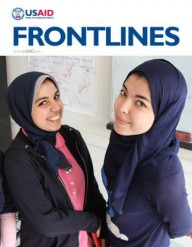

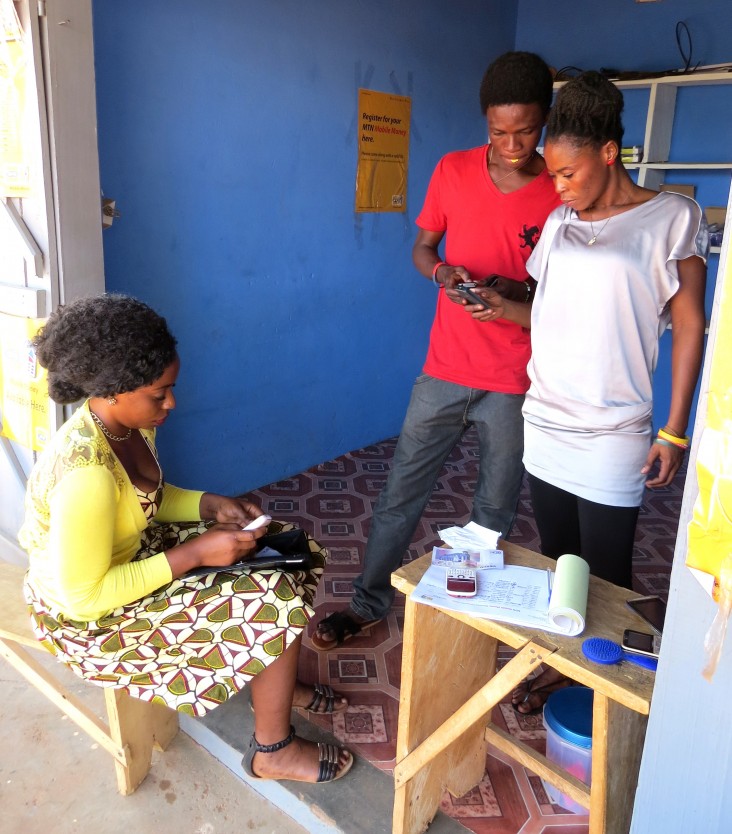
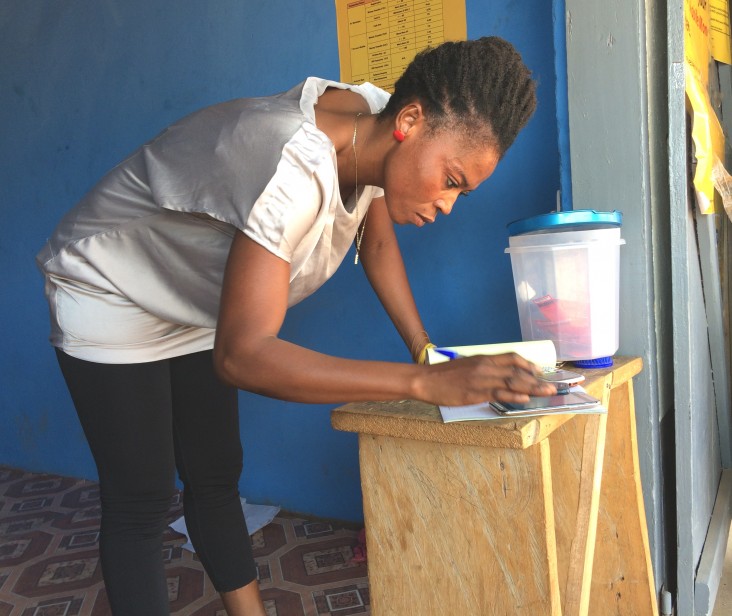
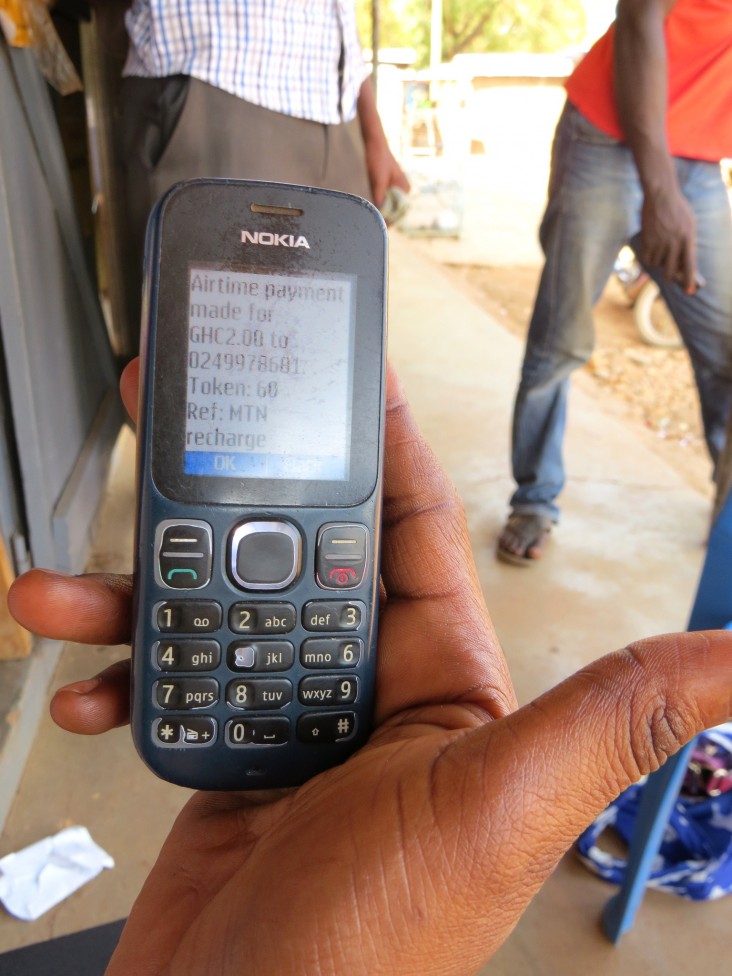
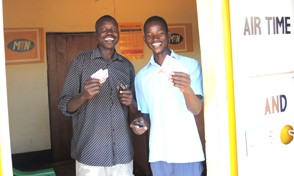
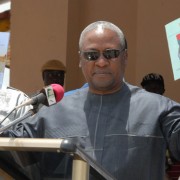
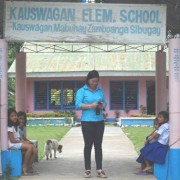

Comment
Make a general inquiry or suggest an improvement.